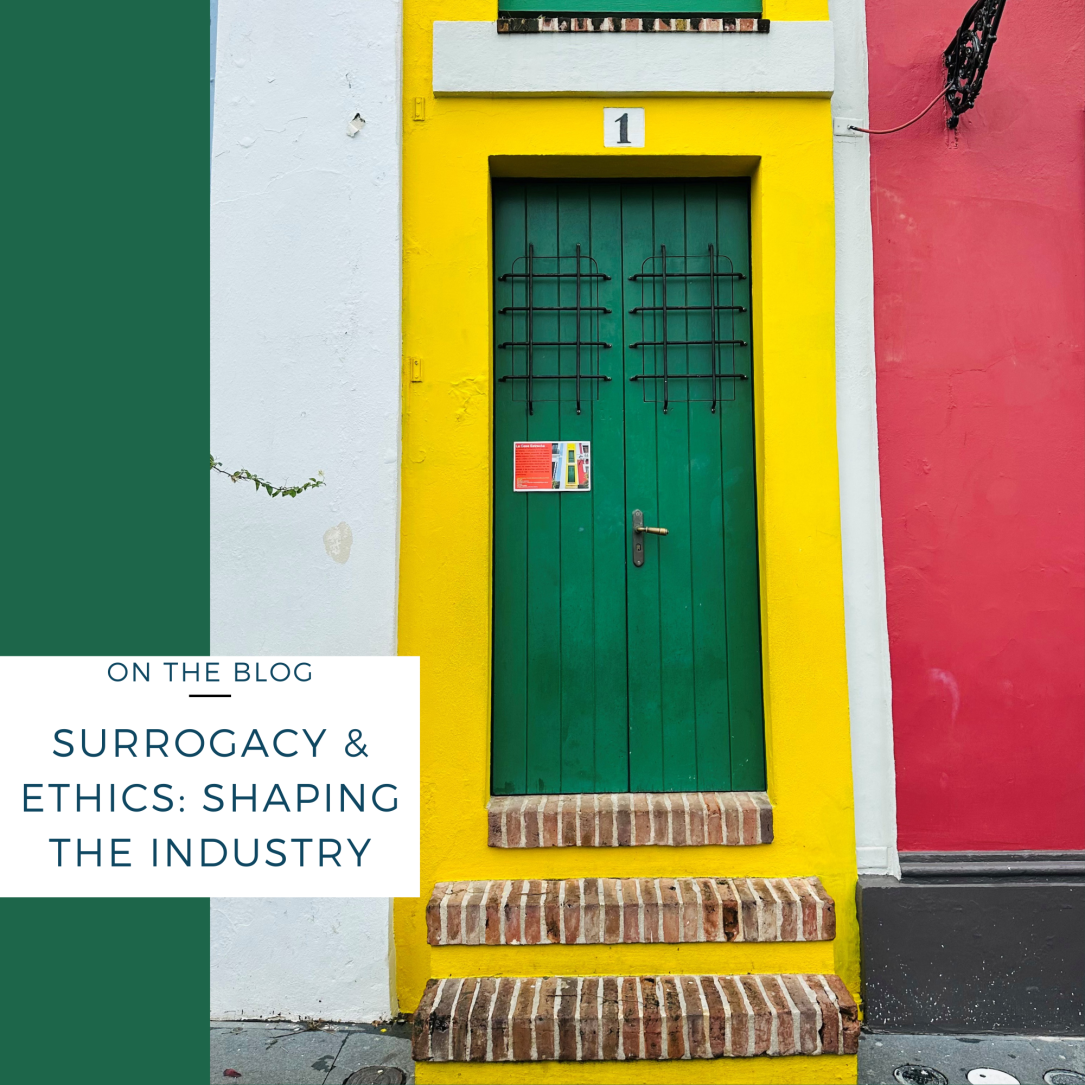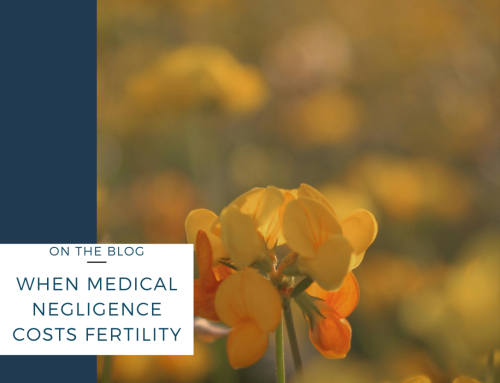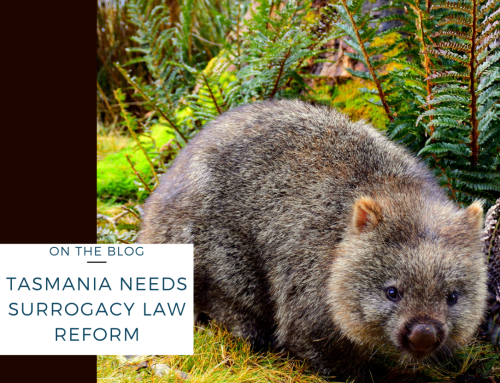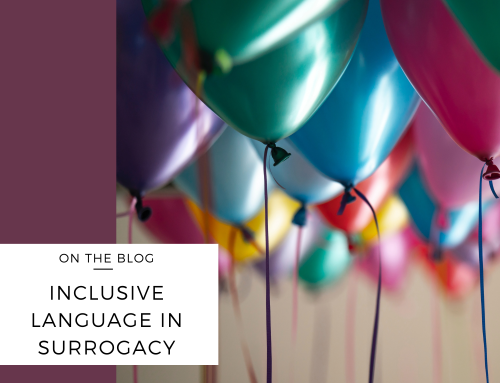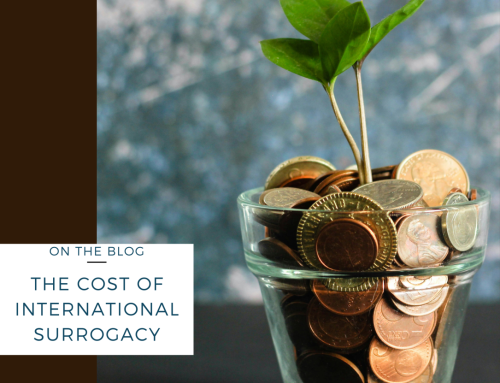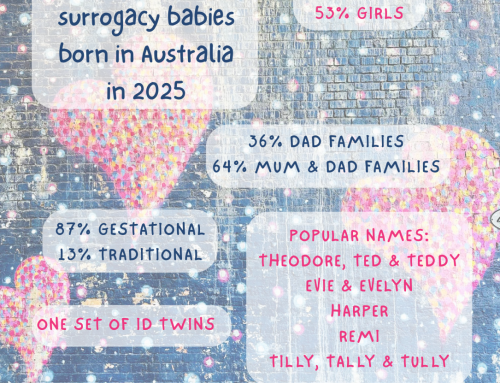Surrogacy and ethics – our responsibility to shape the industry.
There are less than 150 surrogacy births in Australia, and over 300 children born overseas each year, for Australian intended parents. 75% of children born via surrogacy are born overseas.
International surrogacy is ever-changing, with a whack-a-mole landscape with each scandal or disaster, followed by another one. It is not a matter of if, but when there is another scandal. I predict that Georgia will be next, with reports of surrogates being trafficked (‘travelling surrogates’) from Turkiye, Ukraine and Russia and being housed in shared accommodation in Tblisi.
Surrogacy challenges our ideas of family creation, and of womanhood and motherhood. We often think of surrogacy as a means to an ends for intended parents, but at its core, ethical surrogacy is a story of love and a shared goal of growing a family. Ethical surrogacy is about love.
The surrogacy industry however, is often about money. During travels for my Churchill Fellowship, colleagues across the world raised concerns with me about surrogacy and ethical issues in the industry. The surrogacy industry – intermediaries, international service providers and trade shows – are largely unregulated across the world. The industry is driven by money, and perpetuated by conflicts of interest, quid pro quos, sponsored events and commissions.
There is a lot of surrogacy and ethics virtue signalling in the industry. Calling something ‘ethical’, with no reference or adherence to ethical standards, is a marketing ploy. It suits the industry, but does not promote or protect the rights of the parties or the children born through surrogacy.
The surrogacy industry relies on endorsement and sponsorship from the community, lawyers, counsellors and clinics. Events are held to showcase services that sponsor the host – not because they present ethical or safe options, but because they paid a sponsorship fee. They are not interested in being critiqued, even when challenged on unethical practices.
My colleagues will know how highly I value ethics and integrity and that I do not shy away from calling out unethical behaviour in the industry, including here at home – and even in the face of threats of defamation proceedings. The surrogacy scandal in Crete in 2023 highlighted how vulnerable Australian intended parents are, to being sold surrogacy in poorly regulated destinations, by companies permitted to market to them, and by referrals from Australians.
We may not be able to regulate the international surrogacy industry that operates outside our borders, nor stop international providers from advertising online to our citizens. But the Australian surrogacy industry is entirely unregulated. If we are concerned about the exploitation of women and children in other countries, we must take responsibility for our part in enabling and endorsing the industry that sells surrogacy to our citizens.
Attending, speaking and sponsoring event provides an endorsement of the services advertised at the event. It is not enough to say “but we don’t promote those services, we’re only there to present information.” Standing alongside services is tacit endorsement. The community cannot differentiate between good and bad services if they’re all standing in a room together.
When we talk about surrogacy and ethics, it is not just about the choices we make in our own work, but also about the services and partnerships we stand alongside. Lawyers, counsellors and clinicians must lead with ethics and humanity, and recognise that we have influence in shaping this space. We must think carefully about whether the organisations and practices we support truly align with our values and what we believe promotes ethics and the best interests of everyone involved.
It is the job of professionals in the field, to ensure we maintain the highest standards of ethics and integrity and to hold the industry to account to promote ethical, best practice surrogacy internationally and at home.
Surrogacy matching services need to be regulated. My recent travels explored the benefits of a licensing system for surrogacy services, to protect the rights and welfare of surrogates, intended parents and children.
Meanwhile, we should be decriminalising international commercial surrogacy and regulating the industry that profits from surrogacy.
The Australian Law Reform Commission is reviewing Australia’s surrogacy laws and you can read my ideas for reform.

